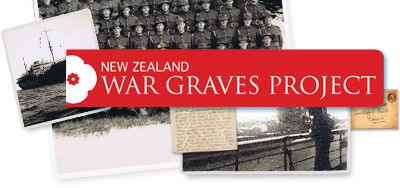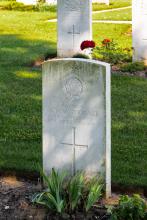"CAPTAIN ALAN MACDOUGALL. More information has been received in a letter from England with reference to the recent death in action in France of Captain Alan MacDougall, one of the early Rhodes Scholars from New Zealand. He was killed instantly by a bomb from a trench mortar, on the night of August 3. The body was recovered, and was buried with full military honours in Delville Wood. Alan MacDougall spent the best part of his life in Wellington. He was educated at the Terrace School, Wellington College, and Victoria College, and was a brilliant scholar. On going to View College, at Oxford, he took first-class honours in modern languages. On leaving Oxford he was appointed Assistant Professor of English at Nottingham University, and subsequently filled a similar at Queen's University, Belfast, where he was when war broke out. Then he obtained a commission in the 22nd Battalion of the Royal Fusiliers, and was in England with them until October last year, being promoted captain on June, 1915. On going to the front after the battle of Loos, his battalion was near La Bassee. Afterwards they were allotted to the celebrated Souchez front. Captain MacDougall was in London several times on leave, the last time in June, when for the first time the effects of trench life were apparent. In a recent letter he said: "Trench mortars make our days one continual palpitation. The Boches are horribly accurate. The things plough downwards fifteen feet, and few dug-outs are proof against them."[Auckland Star, Volume XLVII, Issue 225, 20 September 1916, Page 6]
"The "Spike," the Victoria University College magazine, includes in its last issue some very interesting extracts from letters from ex-students now on active service. Amongst them axe several taken from the last letters received from the late Captain Alan Macdougall, recently killed in France, and who was a former Rhodes scholar from the Victoria University. These letters rather convey an impression that the loss of friends who had fallen on the field of battle had saddened him and left him lonely. Just two weeks before his death he wrote: —
"It is curious how the vicissitudes and liabilities of this great storm alter one's scale of values. Most of us, if any of our crowd survive, will apply different standards to life in general after the war is over. In the meantime we take each day as it comes, and keep pretty cheerful. The next few days will see us in the south. The prospects down there leave us calm. Most of the men whose friendship I valued at Oxford are on the lists, some dead, some grievously wounded. I don't think there is anyone of my real friends actually in the line except possibly a Frenchman; and it's weeks since I heard from him."
In what was possibly his last letter he wrote: —
"I am kept very busy these days. We are moving from village to village every day, and this means work for me. Our original battalion has changed considerably. Few of the original officers remain, and few of the men. My best subaltern, as fine a boy as ever breathed, was killed ten days ago. I haven't quite realised the fact: he was unconcious [sic] throughout — which was sad. His expression was more pure and serene than any dead man's I've seen — touched as it were with immortality. We buried the boy close to the line, amongst his men, and I think all is well with him and them. The Bosch gave us about fifteen minutes for the service, and then the machine-guns spattered all around and we had to get off. Purely a coincidence, as it was all indirect fire."
Victoria. University is very proud of its Roll of Honour, a pride which it has every reason to feel and express. Between 300 and 400 students and ex-students are on active service. The Roll of Honour consists of 36 names, and amongst these are two Rhodes scholars — Captain Alan Macdougall and Lieut. Athol Hudson — both of whom were killed in action within a few weeks of one another." [Press, Volume LII, Issue 15728, 23 October 1916, Page 10]


